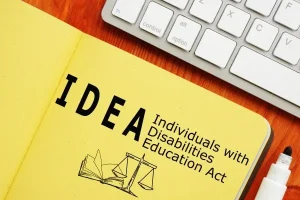What Does the “Nazi Pug” Teach Us About Free Speech?
April 29, 2018
In April of 2016, Mark Meechan—known online as “Count Dankula”—posted a video of his girlfriend’s pug, Buddha, performing the Nazi salute while watching Adolf Hitler’s speech at the 1936 Olympics in Berlin. Why did he do it? The dog got on his nerves because his girlfriend thought everything it did was cute, so in an attempt to annoy her, he turned it into the least cute thing he could think of: a Nazi. According to Meechan, the video was nothing more than a joke.
Fast forward two years. As the video’s views skyrocketed to the millions, Meechan became a topic of hot controversy for proponents and opponents of free speech alike—and things came to a head when a Scottish court ruled that his content violated the Communications Act a month ago and charged him with a hate crime. This was, as the Airdrie Sheriff Court and Sheriff Derek O’Carroll claim, because his video was “menacing,” “anti-Semitic,” and “racist.” Since then, Meechan has been fined £800 (slightly over $1,110), a relatively lucky compromise compared to jail.
Is it true that the video was offensive? Definitely. Repulsive? Sure. But the ramifications of this case for free speech as a whole is disturbing. Out of full transparency, it’s absolutely true that countries in Europe don’t guarantee the same free speech protections as the United States. In fact, many European countries already have instituted speech codes, so it should come as no surprise that Meechan was punished for his actions. This brings us to our first question: why is punishing Meechan so wrong?
The answer to this question is simple: handing over the ability to silence people’s viewpoints and words to the government implies tyranny. As we see with Meechan, the purpose of the video was obviously satiric—is Meechan a Nazi? No. Saying he is, or that he advocates for anything said in Hitler’s 1936 speech, is a total misrepresentation of this case and does nothing but muddy the debate. However, this is what the government effectively does through bans on hate speech. The true meanings of words, pictures, and artwork are often complicated, and can be completely subjective; this is why courts cannot be given the ability to decide what’s illegal and what isn’t on a whim. The impact of this is twofold: first, this leads to a skewed conviction, which is inherently immoral for the justice system; and second, this can lead to a chilling effect of intellectual (and not “hateful”) speech. By this, I mean that the government may actively discourage people from using their legally protected rights to discuss issues of race, gender, sexuality, and other touchy subjects by making them fear what could happen to them like in cases such as Meechan’s.
I personally didn’t think the video was very funny, nor do I feel that such content has any productive place in society. However, I also understand that’s just my opinion and others may feel differently; many people found the video hilarious. Who am I to tell them what to think? They’re not laughing at the content because they agree with the already ironic stance it’s taking on a genocidal maniac; they’re laughing at the contrast of extremes between a cute dog and something as disgusting as that genocidal maniac. Meechan acknowledges up front that Hitler was awful—that’s why he made the video in the first place. There’s also something to be said about how comedians walk the fine line between what’s reprehensible and “just a joke”—perhaps they deserve more leeway in their attempt to clearly define and test the limits of indecent dialogue. Or maybe not.
Does this mean the debate on speech codes is black-and-white (no pun intended)? No, not at all. Certain studies suggest that exposure to jokes predicated on hate speech leads to greater levels of tolerance towards actual discrimination. This makes sense—oftentimes, the result of saying these jokes is the normalization of the ideas expressed in them. Does this mean we ought to jail any edgy, self-proclaimed comedian simply because he says things that are offensive? In my opinion, no. The subjective bans that we would have to use is a large problem indeed. Giving such a power—deciding what kind of viewpoints to allow in public discourse—to the government just isn’t right. The label of “offensive” is one that’s incredibly amorphous, and allowing it to enter our legal system would go against the principles this country was founded upon.
I firmly believe the case of Mark Meechan serves as more damning proof that speech codes—built in the same vague, ambiguous way that many countries in Europe are using—don’t work. It’s lucky that this case got a lot of exposure from the public, but that alone isn’t a reason to celebrate. What that means is that other cases that may fall under the radar can still lead to punishments beyond simple monetary fines. Luckily, this has made it clear that the misinterpretation of content with meanings that aren’t objective leads to an ill-defined ground in determining what to and not to ban. The government shouldn’t be able to keep people from saying and expressing what they want à la Big Brother. After all, 1984 was meant to be a warning, not an instruction manual.


















































































































































